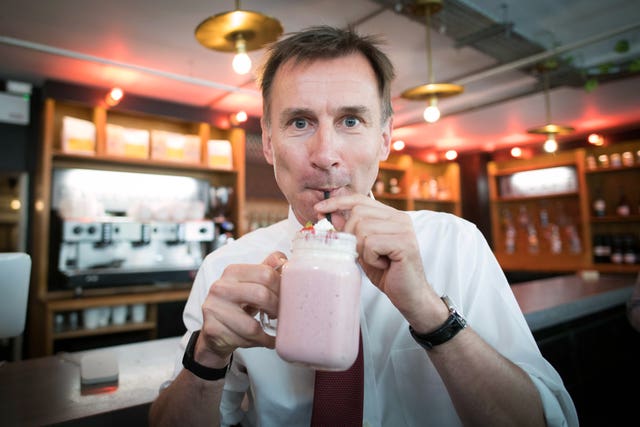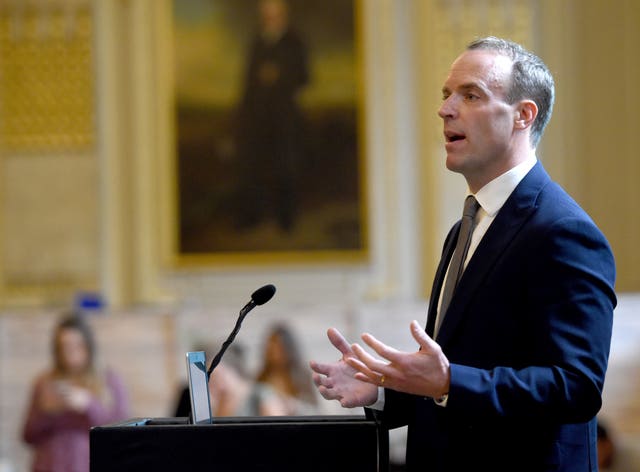Johnson refuses to rule out suspending Parliament to force through Brexit
Tory leadership front runner says he is ‘not attracted’ to ‘archaic’ constitutional devices, but MPs must deliver on the EU referendum.

Boris Johnson has declined to rule out the option of suspending Parliament in order to force through Brexit.
The Tory leadership front runner insisted he was “not attracted” to the idea of “proroguing” Parliament, saying he wanted deliver Brexit as a “proud representative democracy”.
But appearing at the party’s digital hustings, he warned that it was essential that MPs finally acted on the 2016 referendum result and took Britain out of the EU.
“I think our colleagues really are starting to come together,” he said.
“They are thinking about this in a very mature and sober way. I am not attracted to archaic devices like proroguing.
“Let’s get this thing done as a proud representative democracy that asked the people of this country a question, that received a very clear answer, that promised faithfully to put that answer into effect and now we have got to do it.”
At the same time Mr Johnson rejected the idea he could cancel MPs’ summer break so they could sit throughout August to try to resolve the deadlock, suggesting the solution did not lie at Westminster.
“I am not necessarily convinced that Parliament can sort out the problem that Parliament has helped to create,” he said.
“Perhaps more sittings of Parliament is not what we want.”
Other contenders now eliminated from the contest – including Sajid Javid, Rory Stewart and Michael Gove – have previously strongly condemned the idea of proroguing Parliament, potentially dragging the Queen into a constitutional crisis.
Mr Johnson’s comments came after he pledged on Tuesday to take Britain out of the EU by the deadline of October 31 regardless of whether he had been able to negotiate a new deal with Brussels “do or die”.

The former foreign secretary said he did not believe it would end in no-deal, saying: “I think it is a million-to-one against – but it is vital that we prepare.”
However, his rival for the Tory crown, Foreign Secretary Jeremy Hunt, said the party and the country were facing a “very serious situation”.
“Right now we have got to negotiate our way out of this crisis,” he said.
Earlier, campaigning in Essex, Mr Hunt warned Mr Johnson’s approach was more likely to result in a general election which could hand power to Labour.
“If you want to be prime minister, make promises you can actually deliver,” he said.
“The trouble with ‘do or die’ is you could end up with a general election, (Jeremy) Corbyn in Downing Street and no Brexit at all, and I want to offer a more positive future than that.”

The Foreign Secretary again said he would not stick to the “arbitrary date” of October 31 because if a deal was in reach by then “I’m not going to rip the whole thing up”.
His campaign received a boost as Mr Stewart, the International Development Secretary, confirmed he was now backing him to be the next prime minister.
However, former leadership contender Dominic Raab, who is backing Mr Johnson, suggested he could legally ignore the will of Parliament if it tried to prevent him leaving on October 31.
The former Brexit secretary said a Commons motion passed by MPs opposed to a no-deal Brexit would have “zero legal effect” and it would now be “far harder” for MPs to use “wrecking tactics” to block it
“A prime minister that is resolute about this – Boris has been, Jeremy hasn’t – can get us out,” Mr Raab told LBC radio.
“More importantly, by being clear we leave at the end of October we increase our negotiating position and our strength, our leverage, to get the deal that would be acceptable to our country.”
“A prime minister that is resolute about this – Boris has been, Jeremy hasn’t – can get us out,” Mr Raab told LBC radio.





